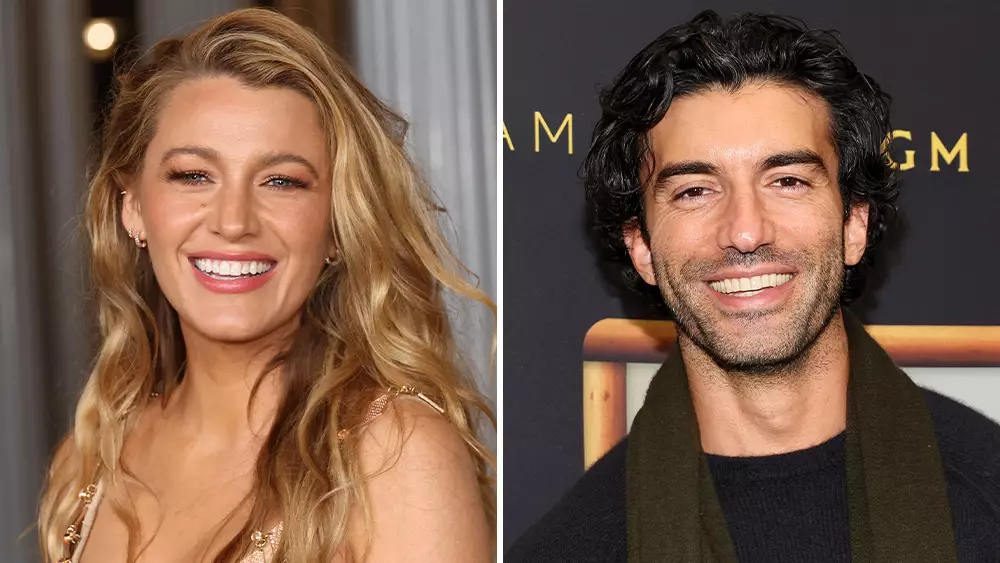The glitz and glamour of Hollywood have often masked the darker undertones of the industry’s power dynamics. The recent legal conflict between Blake Lively and Justin Baldoni concerning allegations of sexual harassment and retaliation during the production of *It Ends With Us* brings these issues to the forefront. This unfolding drama is not just a mere celebrity feud but a significant case shedding light on workplace ethics, the treatment of women in the industry, and the potential repercussions of speaking out against harassment.
The legal confrontation began with Lively’s filing of a sexual harassment and retaliation complaint with California’s Civil Rights Department. This initial move sparked a firestorm, leading to Lively’s decision to escalate the situation by filing a federal lawsuit in New York. At the heart of her complaint is a detailed account of what she believes to be a concerted effort by Baldoni and his team to silence her after she raised concerns about a hostile work environment.
Lively’s complaint outlines a “carefully crafted, coordinated, and resourced retaliatory scheme” designed not only to undermine her credibility but also to intimidate others who might consider coming forward with similar grievances. The legal documents claim that Baldoni, along with his associates at Wayfarer Studios, engaged in behavior that constituted both a breach of contract and illegal actions under state and federal law. This dual nature of the lawsuit underscores the complexity of the situation—it’s not simply about individual grievances but also about broader systemic issues within Hollywood that often sideline the voices of the vulnerable.
Blake Lively’s lawsuit is emblematic of the struggles faced by many women in the entertainment industry when they confront power dynamics that favor the more influential. By alleging that Baldoni and fellow executives orchestrated efforts to silence her—a tactic often employed to maintain the status quo in many workplaces—Lively is calling attention to a culture that frequently prioritizes protecting reputations over ensuring a safe work environment.
An interesting aspect of this case is the manner in which Baldoni has responded. He has denied any wrongdoing, asserting that Lively’s accusations are unfounded and misrepresented. His defensive strategy includes a counter-suit against the New York Times for its coverage of the incident, which he claims cherry-picked his communications to unfairly depict his side of the story. This back-and-forth illustrates the highly charged environment where public perception can shape legal outcomes.
The consequences of this legal battle extend beyond Lively and Baldoni; they present a crucial opportunity for a reassessment of how sexual harassment and workplace safety are handled in Hollywood. With high-profile cases capturing the media’s attention, there is increasing pressure for industry leaders to establish and reinforce policies that champion respect and accountability. Lively’s actions, as detailed in her lawsuits, symbolize a growing movement among industry professionals who refuse to accept a culture of silence surrounding harassment.
Moreover, the case sets a precedent for how retaliation claims may be evaluated in the future. If courts recognize the extent and implications of an orchestrated retaliation campaign as Lively alleges, it might encourage more victims to come forward and speak against their abusers without fearing retribution. The legal discourse surrounding this case could indeed transform industry norms and empower individuals who have long been sidelined in what is often perceived as a volatile environment.
The legal skirmishes between Lively and Baldoni serve as a reminder of an ongoing cultural reckoning within Hollywood—a sector that has, for too long, allowed abusive practices to fester in the shadows. As the entertainment world grapples with the effects of the #MeToo movement and ongoing discussions of gender equity, Lively’s case could very well be a pivotal moment that drives substantive change.
Industry stakeholders must also grapple with the broader implications of Lively’s claims and the fallout of this legal dispute. A lack of action against such grievances could lead to public outcry and potential boycotts against productions associated with detrimental behaviors. Ultimately, this case not only highlights the individual struggle of one actress but represents a collective push towards a healthier, safer workplace for everyone in the film and television industry.
Blake Lively’s legal battle is not just a simple celebrity spat; it’s a complex, multifaceted issue that resonates with ongoing conversations about power, accountability, and respect in Hollywood. As we witness the details unfold, it seems clear that the impact of this case may extend well beyond Lively and Baldoni, prompting deeper reflection and hopefully, meaningful change within the industry.


Leave a Reply